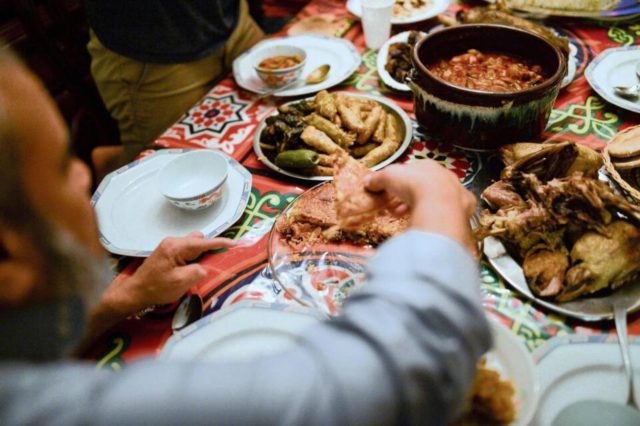The holy month of Ramadaan is usually marked by social and religious gatherings where Muslim families and friends unite to break their fast together, after sunset during iftaar or before dawn during suhoor.
Cape Town – For Muslims around the world, the holy month of Ramadaan has completely changed due to the Covid-19 pandemic.
The holy month of Ramadaan is usually marked by social and religious gatherings where Muslim families and friends unite to break their fast together, after sunset during iftaar or before dawn during suhoor.
Many Muslims increase their attendance at mosques during the holy month and congregate for longer prayers for taraweeh and qiyam.
However, because of physical distancing and measures taken by governments to mitigate the spread, millions of Muslims find themselves at home. This year, Ramadaan falls between late April and late May.
Month-long Ramadaan bazaars with stalls selling food, drinks and clothes, usually busy sites, are not allowed in Malaysia and Singapore.
On the local side, mass “boeka” won’t take place in places such as the Bo-Kaap during this month.
Covid-19 is spread through respiratory droplets and contact with contaminated surfaces. To mitigate the public health impact, several countries have implemented physical distancing measures aimed at interrupting transmission by reducing interaction between people.
“These measures are fundamental control mechanisms to control the spread of infectious diseases, particularly respiratory infections, associated with large gatherings of people. Physical distancing measures, including the closing of mosques, monitoring of public gatherings and other restrictions on movement, will have direct implications for the social and religious gatherings central to Ramadaan,” said the World Health Organization (WHO) in a statement.
If cancelling social and religious gatherings, where possible, virtual alternatives such as television, radio, digital, and social media can be used instead.
National health authorities should be considered the primary source of information and advice regarding physical distancing and other measures related to Covid-19 in the context of Ramadaan.
The following health advice for social and religious practices and gatherings during Ramadaan can be applied across different national contexts.
Fasting
No studies of fasting and risk of Covid-19 infection have been performed. Healthy people should be able to fast during this Ramadaan as in previous years, while Covid-19 patients may consider religious licenses regarding breaking the fast in consultation with their doctors, as they would do with any other disease.
Healthy diet and nutrition
Proper nutrition and hydration are very important during the month of Ramadaan. People should eat a variety of fresh and unprocessed foods every day and drink plenty of water.
Offering special prayers for the sick, alongside messages of hope and comfort, are methods to observe the tenants of Ramadaan while maintaining public health.
Charity
When the faithful give special attention to those who may be adversely affected while distributing their sadaqat or zakah during this Ramadaan, consider the physical distancing measures in place.
To avoid the crowded gathering associated with iftar banquets, consider using individual pre-packaged boxes/servings of food. These can be organised by centralised entities and institutions, which should adhere to physical distancing throughout the whole cycle (collecting, packaging, storing and distribution).
Advice on physical distancing
• Practise physical distancing by strictly maintaining a distance of at least 1.5 metres between people at all times.
• Use culturally and religiously sanctioned greetings that avoid physical contact, such as waving, nodding, or placing the hand over the heart.
• Stop large numbers of people gathering in places associated with Ramadaan activities, such as entertainment venues, markets, and shops.
Advice to high-risk groups
• People who are unwell or have symptoms of Covid-19 should avoid attending events and follow the national guidance on follow-up and management of symptomatic cases.
• Older people and anyone with pre-existing medical conditions (such as cardiovascular disease, diabetes, chronic respiratory disease, and cancer) are urged not to attend gatherings, as they are considered vulnerable to severe disease and death from Covid-19.
Muslims perform wudu before prayers, which helps maintain healthy hygiene. The following additional measures should be considered:
• Ensure the availability of disposable tissues and bins with disposable liners and lids, and guarantee the safe disposal of waste.
• Encourage the use of personal prayer rugs to place over carpets.
• Provide visual displays of advice on physical distancing, hand hygiene, respiratory etiquette, and general messages on Covid-19 prevention.
• Frequently clean often-touched objects such as doorknobs, light switches, and stair railings with detergents and disinfectant.
IOL








